Abstract
Beginning in the latter part of 1985, 2,047 gay and bisexual men who were enrolled in the Pitt Men's Study, the Pittsburgh cohort of the Multicenter AIDS Cohort Study (MACS), were invited by mail to learn the results of their antibody test for HIV infection--human immunodeficiency virus infection. Participants were asked to complete and return a questionnaire designed to assess the factors influencing their (a) decision about learning the results, (b) recent sexual behavior, (c) knowledge about acquired immunodeficiency syndrome (AIDS), and (d) attitudes toward AIDS risk reduction. Of those men, 1,251 (61 percent) accepted the invitation, 188 (9 percent) declined, and 608 (30 percent) failed to respond. Fifty-four percent of the cohort subsequently learned their results. There were no significant differences in demographic, behavioral, and attitudinal characteristics or HIV seroprevalence between the men who accepted and those who declined. However, significant demographic differences were noted between the men who responded to the invitation versus those who did not; the latter group was composed of a greater proportion of men who were younger, nonwhite, and less educated. The most frequently cited reason (90 percent) why men wanted their test results was to determine if they had been infected with HIV. Of those who declined, 30 percent cited concerns about the psychological impact of learning about a positive result as being the most important factor for their decision. The two most frequently selected reasons for declining were the belief that the test is not predictive of the development of AIDS (48 percent) and concern about the worry that a positive result would produce (48 percent).(ABSTRACT TRUNCATED AT 250 WORDS)
Full text
PDF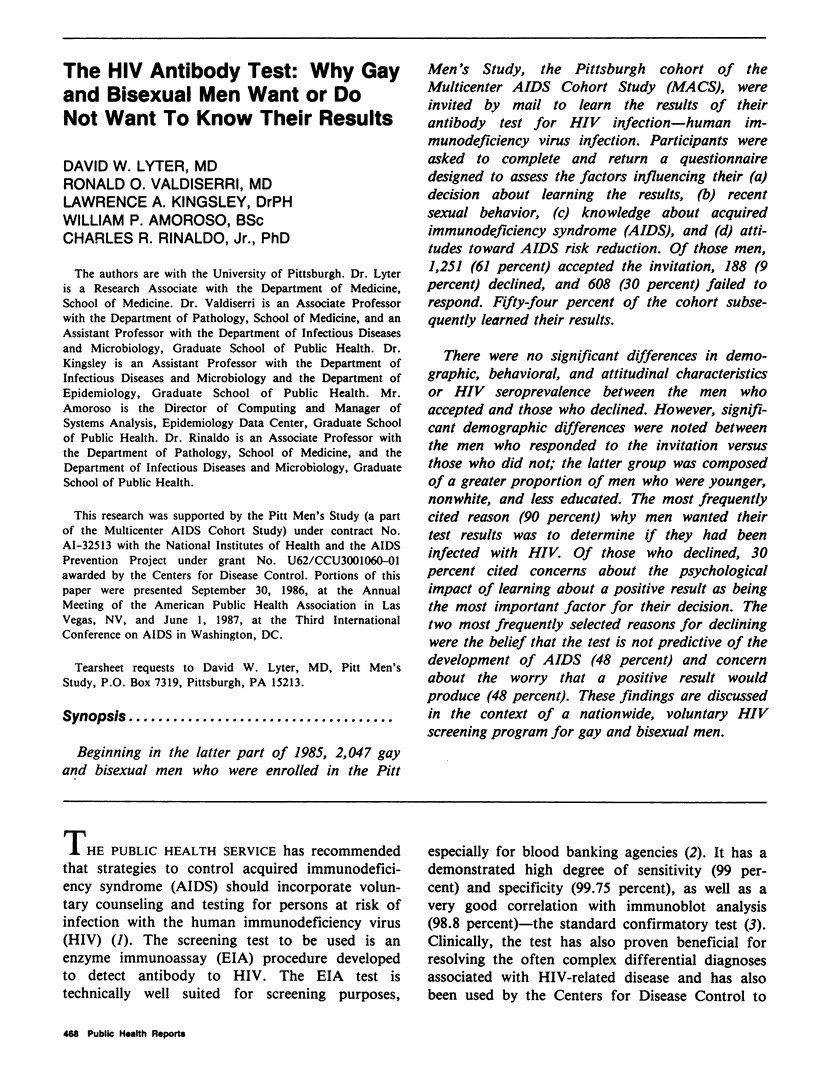
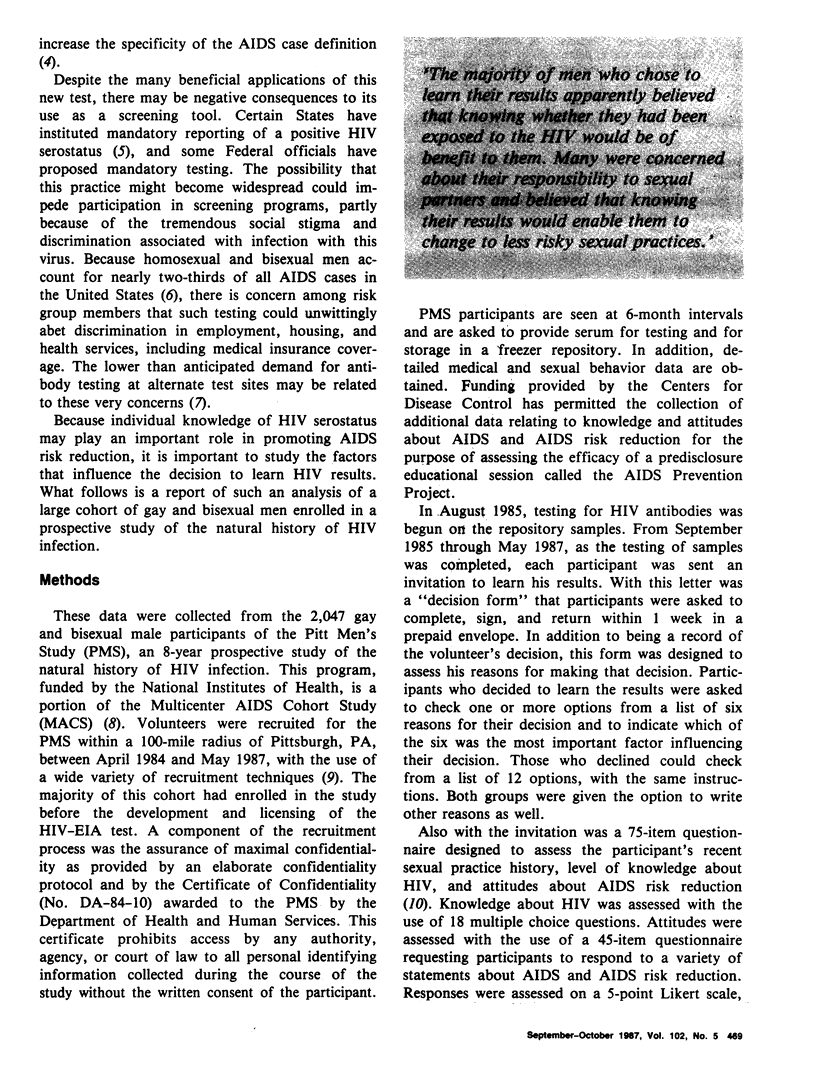
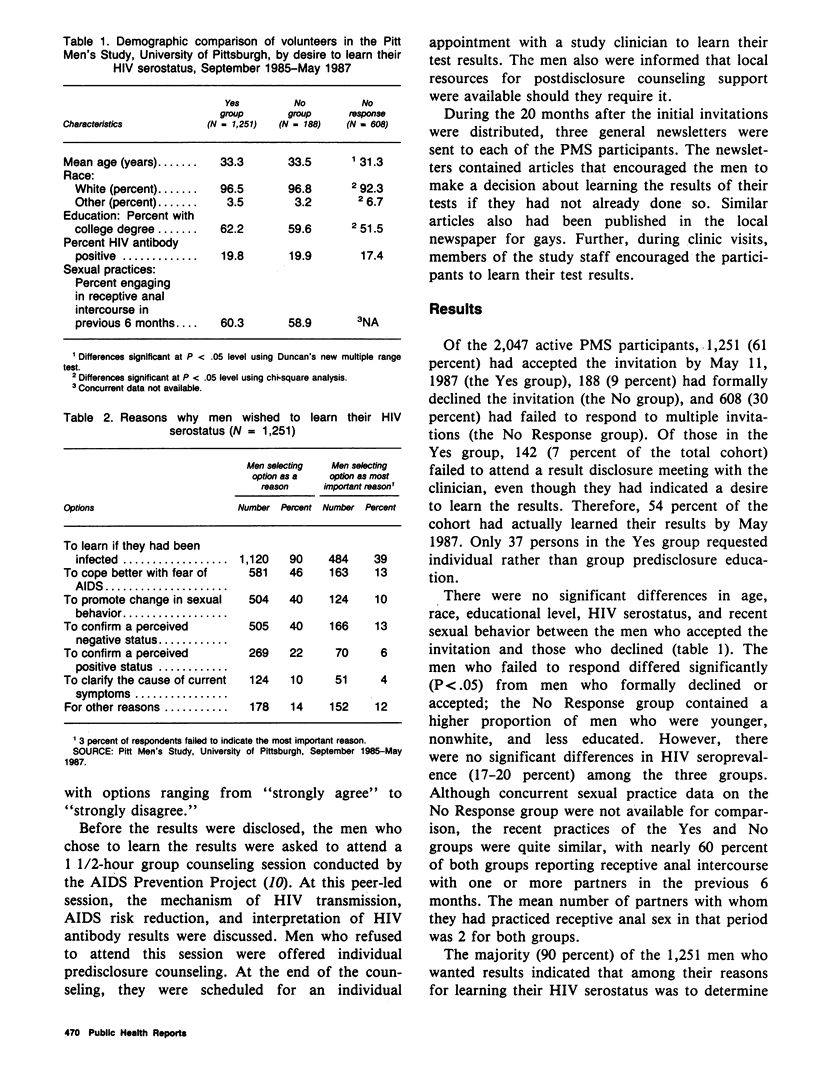
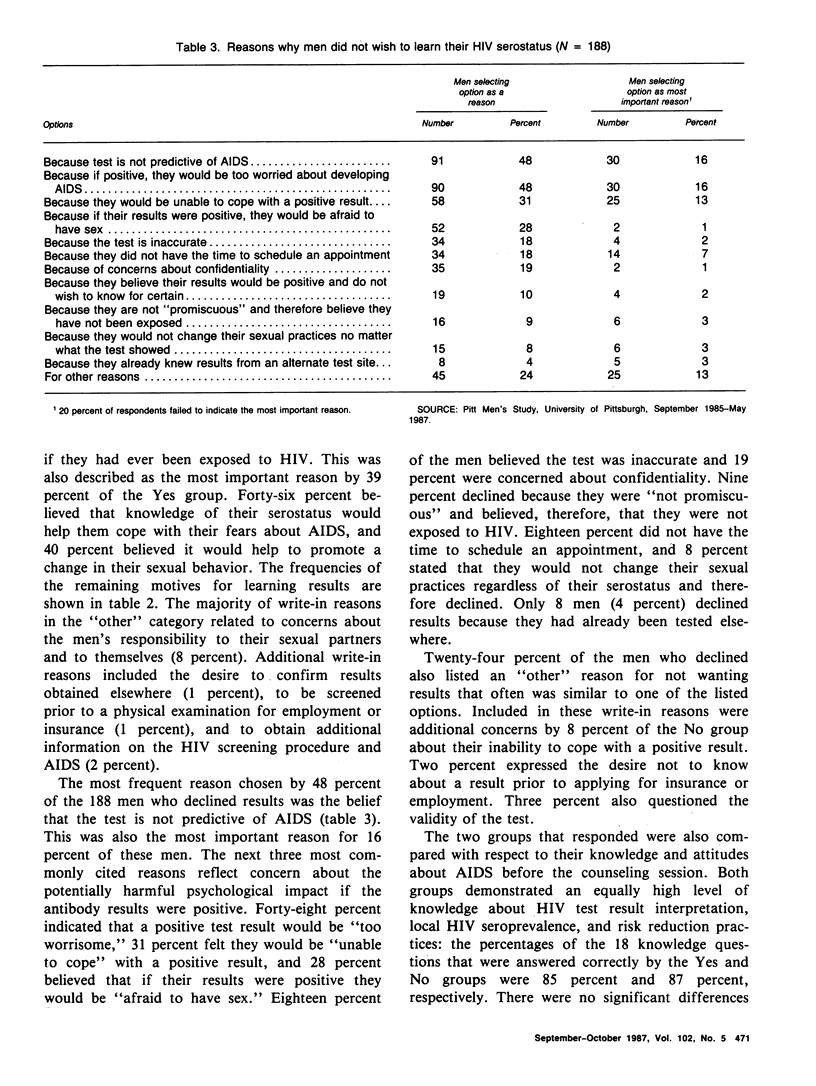
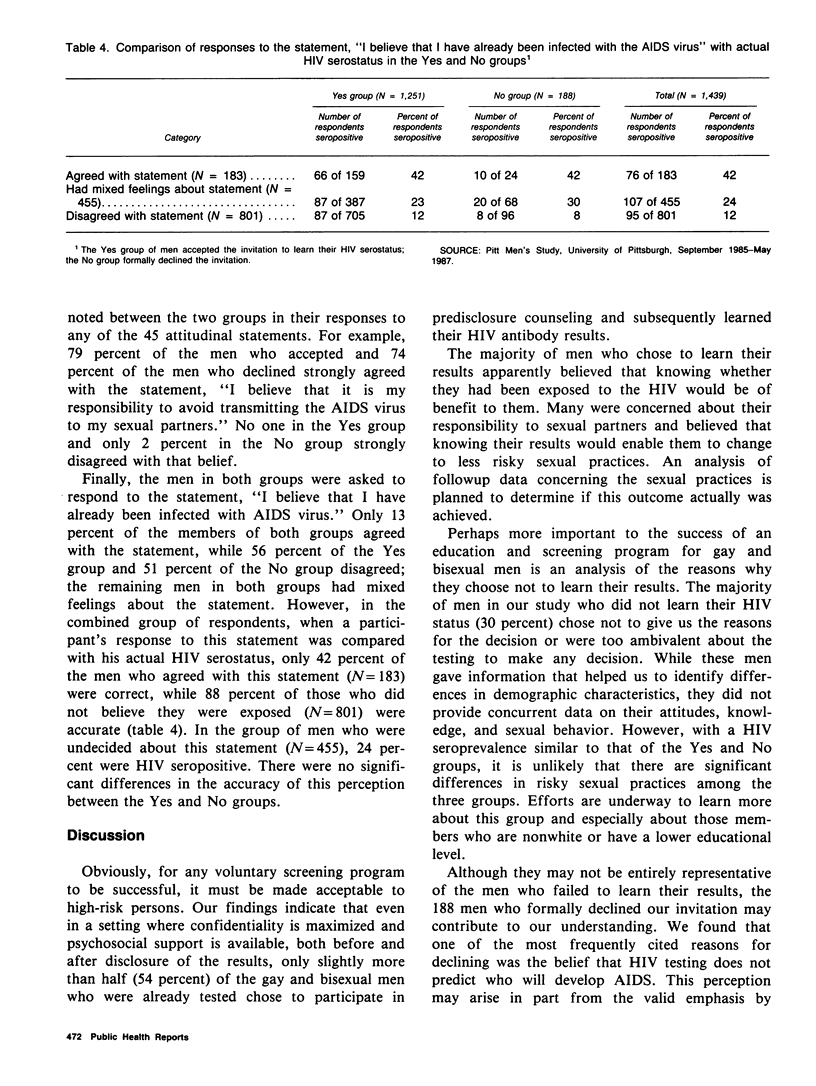
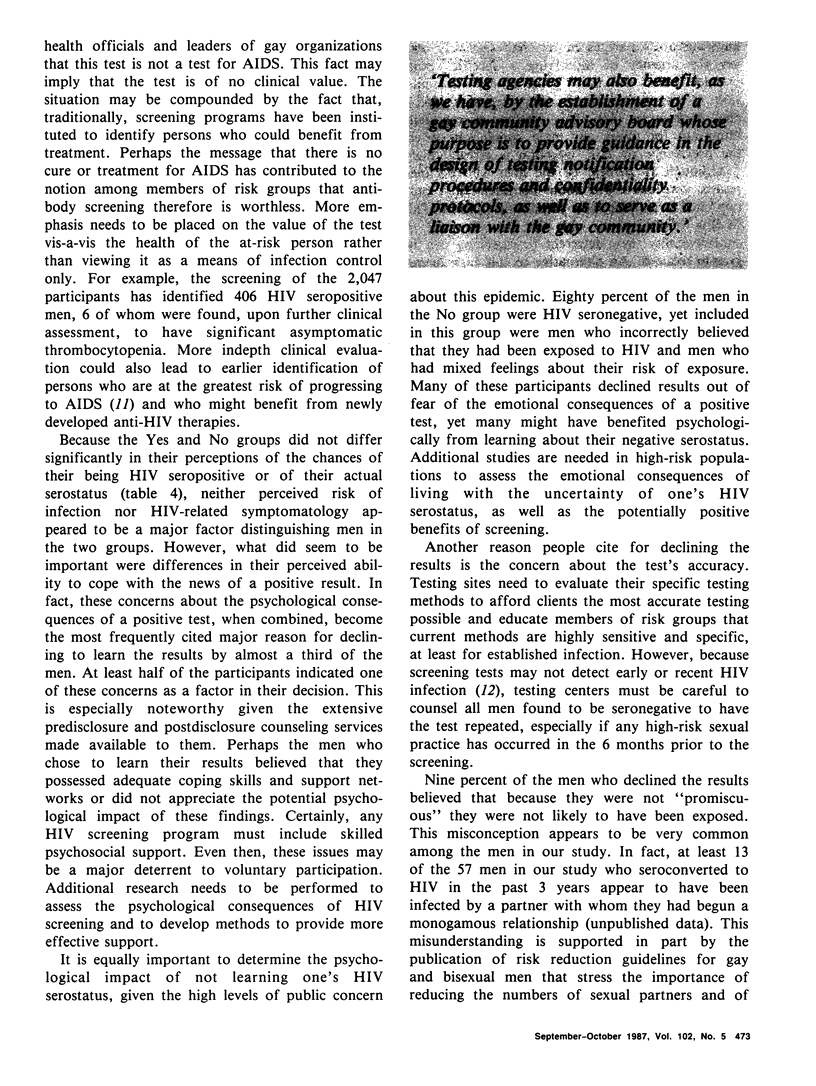
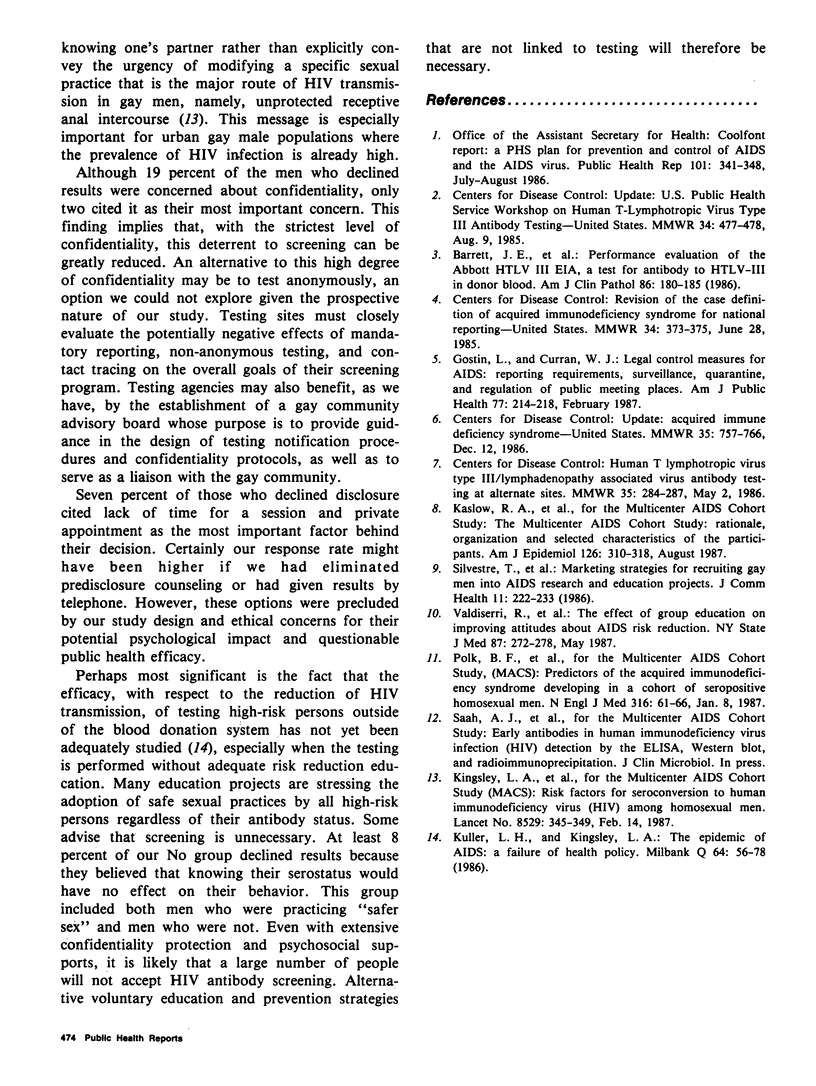
Selected References
These references are in PubMed. This may not be the complete list of references from this article.
- Barrett J. E., Dawson G., Heller J., Bairstow C., Fico R., Webber J. S., Gutierrez R., Decker R. H. Performance evaluation of the Abbott HTLV III EIA, a test for antibody to HTLV III in donor blood. Am J Clin Pathol. 1986 Aug;86(2):180–185. doi: 10.1093/ajcp/86.2.180. [DOI] [PubMed] [Google Scholar]
- Gostin L., Curran W. J. Legal control measures for AIDS: reporting requirements, surveillance, quarantine, and regulation of public meeting places. Am J Public Health. 1987 Feb;77(2):214–218. doi: 10.2105/ajph.77.2.214. [DOI] [PMC free article] [PubMed] [Google Scholar]
- Kaslow R. A., Ostrow D. G., Detels R., Phair J. P., Polk B. F., Rinaldo C. R., Jr The Multicenter AIDS Cohort Study: rationale, organization, and selected characteristics of the participants. Am J Epidemiol. 1987 Aug;126(2):310–318. doi: 10.1093/aje/126.2.310. [DOI] [PubMed] [Google Scholar]
- Polk B. F., Fox R., Brookmeyer R., Kanchanaraksa S., Kaslow R., Visscher B., Rinaldo C., Phair J. Predictors of the acquired immunodeficiency syndrome developing in a cohort of seropositive homosexual men. N Engl J Med. 1987 Jan 8;316(2):61–66. doi: 10.1056/NEJM198701083160201. [DOI] [PubMed] [Google Scholar]
- Silvestre A., Lyter D. W., Rinaldo C. R., Jr, Kingsley L. A., Forrester R., Huggins J. Marketing strategies for recruiting gay men into AIDS research and education projects. J Community Health. 1986 Winter;11(4):222–232. doi: 10.1007/BF01325118. [DOI] [PubMed] [Google Scholar]
- Valdiserri R. O., Lyter D. W., Kingsley L. A., Leviton L. C., Schofield J. W., Huggins J., Ho M., Rinaldo C. R. The effect of group education on improving attitudes about AIDS risk reduction. N Y State J Med. 1987 May;87(5):272–278. [PubMed] [Google Scholar]


